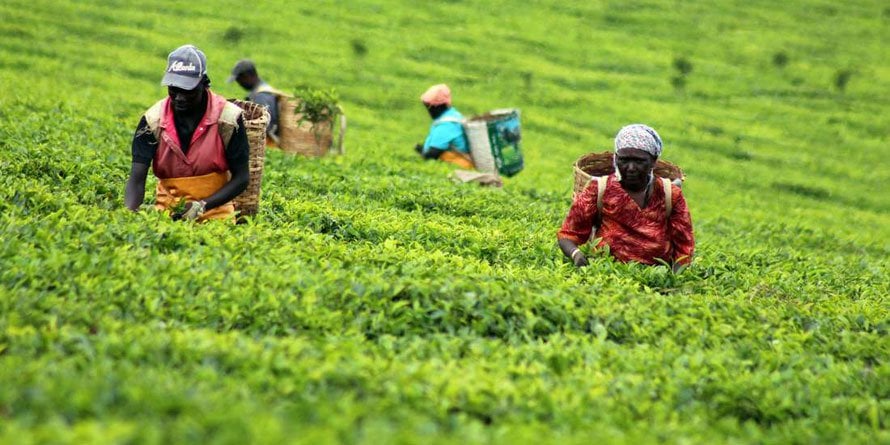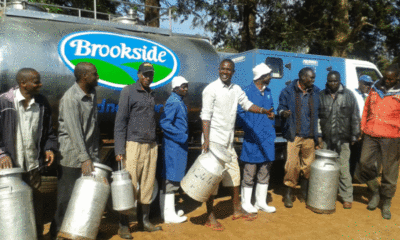Agribusiness
New Coffee, Tea Bills to Save Farmers from Exploitation

To protect farmers from exploitation, efforts are ramped up to wipe out cartels, which constitute the biggest liability in the tea and coffee sectors.
This is in accordance with the Senate’s Agriculture Committee, which condemned the high levels of infiltration by dishonest middlemen and dishonest directors across the value chains of crops.
They said that the majority of these cartels are millers, agents, and marketers of the product and that they have registered more than one firm.
The lawmakers, led by Senator Kamau Murango, the chair of the committee, highlighted that they have since changed the 2019 tea and coffee bills and adopted new sets of bills, which they have passed on to farmers and are currently including through public participation.
Murango emphasized that because the previous administration had not taken the farmers’ recommendations into account, the committee had to simplify the 2019 bills governing the sale of crops.
“We are meeting the farmers on the ground because we realised that the memorandums which were presented to the previous regime were mainly from cartels who only wanted to defend their interest. In the settings we are conducting, we are documenting the voices and receiving the memorandums from farmers so that when we retreat we shall integrate their decisions and come up with a good bill,” he said.
The senator expressed regret that due to widespread middlemen exploitation, who are now living opulent lifestyles at the expense of the farmers, farmers have had nothing to show for their effort for the longest time.
He claimed that in the tea industry, the new measure aims to liberalize and broaden the market by allowing farmers the choice to sell their goods directly to consumers rather than only through the Mombasa tea auction. According to him, this will diversify the tea industry and allow growers to receive paid for their toil.
Additionally, he added that the bill suggests paying farmers for their produce through a direct settlement method, which will allow farmers to get paid in the same currency they use to trade their produce.
He pointed out that the payment method will aid in the elimination of dishonest brokers who, for the longest time, have set the rates at which farmers should be paid after converting the foreign currency at their favorite financial institutions, which offered profitable rates.
The senator noted that the bills for both tea and coffee will seek to reduce unnecessary licenses that have consistently been imposed and continually frustrate farmers as well as incorporate farmers in significant decision-making boards when speaking in Gichugu on Monday during the committee’s public participation.
The Kirinyaga senator also criticized corrupt small-scale tea owners who had been robbing farmers under the guise of modernizing and enhancing the tea facilities. He claimed that because they are the sole owners of the industries, farmers should always be consulted, therefore he forewarned them that their days were numbered.
Murango asked for the coffee cooperative societies, which produce more than 60% of the coffee grown in Kenya, to be strengthened in an effort to increase revenues.
Murango admitted that his recent trip to the USA coffee expo had proven the outrageous prices at which coffee is marketed in other markets.
“While at the expo, I came across a quarter package of some roasted Kirinyaga-grown coffee beans which was being retailed at $17 dollars. That goes to say that a kilo of the beans is being sold at Sh9,180 while our farmer receives less than Sh100 for their unprocessed cherries. This is not only unfair but very unfortunate,” he said.
Alexander Mundigi, his Embu counterpart, stated that they are committed to winning the conflict in order to restore the former grandeur of the Green Gold. He promised that the committee would not fail the farmers and would use all of its resources to save the industry.
The day has arrived, according to Nyeri Senator Wahome Wamatinga, when candidates for political office won’t utilize the coffee and tea discussions to gain political advantage.
“No more politicking with our coffee and tea. Our colleagues from the National Assembly through the parliamentary coffee caucus and this departmental committee are up to the task to ensure we save farmers from their oppressor.”
He claimed that because the bulk of the individuals serving on the departmental committee are from areas where tea and coffee are grown, they will do a good job.
Nominated senators Beth Syengo and Wafula Wakori of Bungoma stated that they have been and will continue to be a listening ear to all farmers and that they will work to their benefit.
Sen. Allan Kiprotich of Trans Nzoia urged young people to get involved in tea and coffee growing, noting that the majority of them have been reported missing in action.
Farmers applauded the committee for its excellent job and urged it to reinvigorate the industry because they perform menial tasks but rarely receive compensation for them.
“We spent countless hours in our farms and factories yet we are never paid on time and when paid its peanuts. This has prompted many of us to secure loans in order to cater to our families. We plead with the committee to streamline the sector so that our hard work can at least pay,” said a local farmer Florence Wanjiku.








